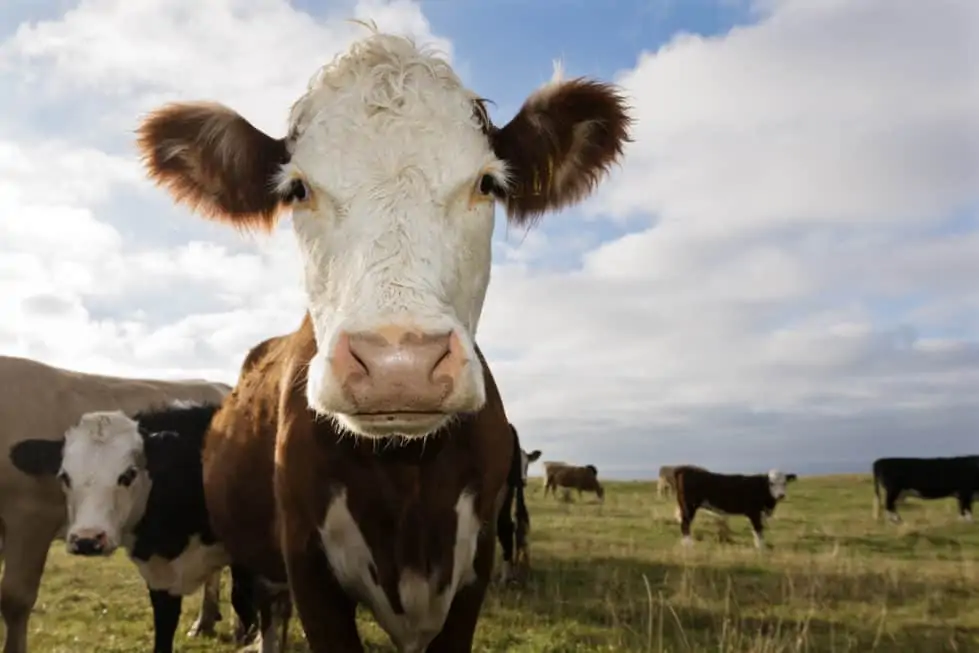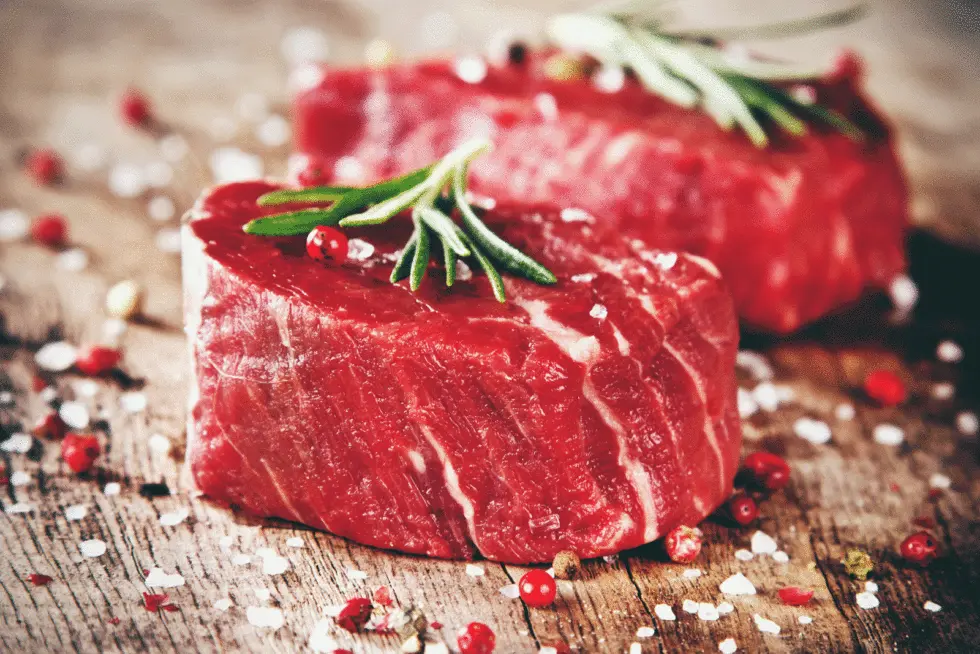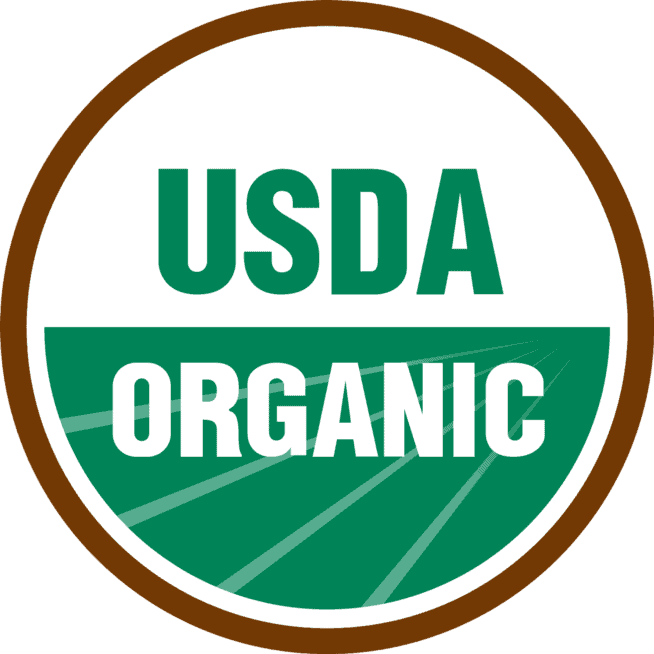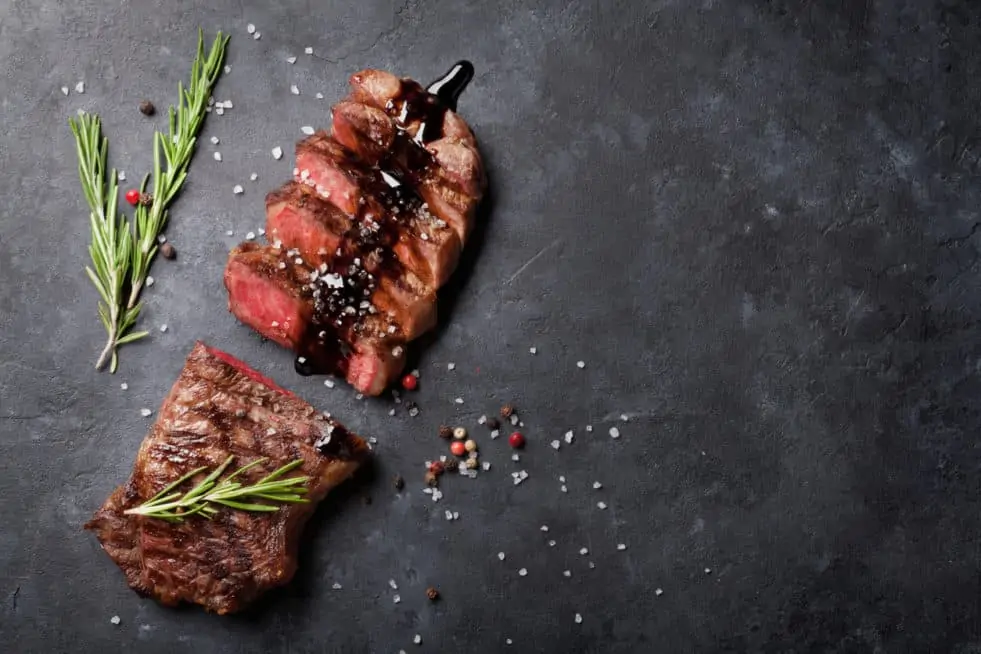What does this label mean, and is it verified?
Hormones can be administered to artificially increase the rate of weight gain in cows and sheep, to induce estrus (heat) in pigs, and to precipitate labor and induce milk production after cows, sheep, and pigs give birth. As with any drug, the use of added hormones comes with potential side effects that may negatively impact animal welfare, the environment, and public health. A “no added hormones” labeling claim is not required to be third-party verified. The USDA also allows a “no added hormones” labeling claim on pork when hormones are used to accelerate the rate of reproduction in the breeder pigs. Consumers should look for one of the verified labels accompanying the “no added hormones” claim (listed below).Variations: “Raised without hormones,” “raised without the use of hormones,” “no hormones administered”

What this claim means
The FDA allows the use of six steroid hormone drugs in beef, including estrogen, progesterone, testosterone, and the synthetic versions of these naturally occurring hormones. Hormones are used to increase the rate of weight gain and increase the rate at which the animals convert feed into muscle and fat. These hormones can be administered in feed but are more typically implanted under the skin of the animal behind the ear. Sometimes a dose of antibiotics is included with the steroid implants to prevent infection of the implantation site. When this “no added hormones” label appears on beef or sheep products, it means that these steroid hormones were not administered to the animals.
Steroid hormone implants are not permitted in the production of pork, chicken, and turkey. The U.S. Department of Agriculture allows a “no added hormones” claim on these products, but only when accompanied by a qualifying statement such as “federal regulations prohibit the use of hormones in poultry (or pork).”
However, while the USDA prohibits the use of the steroid hormones to increase weight gain in pork production, it allows the use of hormones for other purposes. The hormone oxytocin can be administered to female pigs to precipitate labor, accelerate birthing, and to induce milk production. Oxytocin is also permitted in beef and mutton production.
Another drug that can be administered to female pigs is gonadotropin, which mimics naturally occurring reproductive hormones to induce estrus (heat). The drug allows producers to increase the rate of reproduction in the sows (female pigs) that are used as breeder pigs. It allows female breeder pigs to become pregnant again sooner after weaning their piglets. When producers administer the drug after weaning, sows exhibit signs of estrus within four to five days.
Hormones that are used for reproductive purposes are administered to the female breeder pigs, not those that are raised for slaughter. Therefore, a “no added hormones” label on a pork product only means that the pigs raised for slaughter were not given hormones. It does not guarantee that those pigs were produced without hormones given to the breeder pigs.
Why it matters
Potential human health concerns. Growth hormones in beef cattle are banned in the European Union due to concerns about impacts on consumer health. The European Food Safety Authority (EFSA) committee noted a lack of understanding about potential cancer risks and impact on hormone balance in humans at different phases of life. A quantitative estimate of the risk to consumers is not possible, according to the EFSA committee.
Environmental concerns. Steroids are present in cattle manure and have been detected in runoff from feedlots where cattle are treated with growth hormones. Since hormones are classified as endocrine disruptors, this contamination raises concerns for environmental and public health. Even after manure is composted, some hormones remain.
In addition to contaminating water, steroid hormones have also been found in airborne particulate matter near cattle feedlots, with two steroids detected in over 94 percent of samples. According to the Environmental Protection Agency (EPA), more research is needed to fully understand the potential impact of hormones from livestock agriculture on human and ecological health.

Is the claim verified?
By law, food labels have to be truthful and not misleading. The U.S. Department of Agriculture (USDA) requires that labels on beef and sheep with a “no added hormones” claim have to be approved by USDA staff. Companies submit a one-time label application with supporting documentation that supports the “no added hormones” claim. Supporting documentation includes:
- A detailed written description explaining controls for ensuring the animals are raised without hormones or steroids to support the claim is valid from birth to harvest; or the period of raising being referenced by the claim;
- A signed and dated document describing how the animals are raised (e.g., without the use of hormones) to support that the claims are not false or misleading;
- A written description of the product tracing and segregation mechanism from time of slaughter or further processing through packaging and wholesale or retail distribution; and
- A written description for the identification, control, and segregation of non-conforming animals/product.
USDA staff only conducts a one-time desk audit (reviewing paperwork submitted by the company) but does not conduct annual audits or on-farm inspections. Third-party certification of the claim is not required.

What additional information tells you the claim has been verified?
Several verified labels include a prohibition on the use of added hormones. Consumers should look for the following additional labels that offer assurance that the claim was verified:
USDA Organic
The USDA Organic standards prohibit the use of drugs, other than vaccinations, in the absence of illness. The use of hormones for growth promotion is prohibited. A new rule in the organic standards would also specifically prohibit the use of hormones for production and reproduction. However, the USDA has delayed the implementation of this new rule. The use of hormones for therapeutic reasons is allowed.
Certified Humane Raised and Handled
The standards for the Humane Farm Animal Care label state that cattle must not be implanted with any growth promoter. The standards for sheep prohibit feeding any substance to promote growth but do not prohibit implanting or injecting growth hormones. The standards do not prohibit the use of substances to induce estrus (heat).
Animal Welfare Approved
The Animal Welfare Approved standards for beef and sheep prohibit administering hormones to promote weight gain. The standards also prohibit the use of substances to induce estrus (heat). The label is verified.
American Humane Certified
The standards for the American Humane Certified label prohibit implanting or injecting any growth hormone. The label is verified.
American Grassfed
The standards for the American Grassfed label prohibit the use of hormones. The standards state that “no hormones of any type may be administered.” The label is verified.
Global Animal Partnership
The beef standards for all steps of the Global Animal Partnership label prohibit the use of growth hormones. The standards for beef, sheep, and pigs do not specifically prohibit the use of substances to induce estrus (heat). The label is verified.
USDA Process Verified
As of January 2017, there is only one beef producer with an approved “no added hormones” claim that is verified by the U.S. Department of Agriculture through its Process Verified Program. The producer is located in Uruguay, where administering growth hormones to beef cattle is prohibited by national law. The standard only states that “no growth hormones” were administered and does not specify whether the use of all hormones are prohibited.
